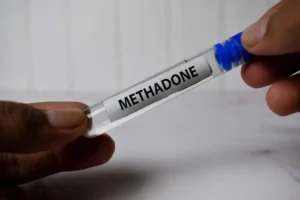
Prior to joining WelbeHealth, she founded a home health company and taught gerontology at McMaster University in Canada. She completed her undergraduate training in gerontology at McMaster University. Robert is an experienced managed care leader and was most recently the CEO of On Lok, the originator of the PACE model of care. He also founded CalPACE, the first state association for PACE organizations. He actively pursues better solutions in senior housing and health care.
[Podcast] Episode 7: The Woman Changing How the World Sees Non-Alcoholic Drinks with Victoria Watters
Even two drinks a day can make a difference in brain size, but as always, the more you drink, the worse the effect. Basically, dopamine is involved in almost every area of your thought and reward system. So the healthier your brain is, the better it can use dopamine effectively and communicate messages between nerve cells and the rest of your body.

How Alcohol Affects Dopamine and Brain Health
Alcohol and caffeine exacerbate symptoms of anxiety and stress, which are also causes of brain fog as I discussed earlier. Alcohol and brain fog may be related to the significant changes in the brain from long-term alcohol use. Blackouts are common with heavy drinking, which can result in side effects of alcohol after use. People with severe addictions or a long history of alcohol misuse may suffer serious withdrawal symptoms when quitting. People should talk to a doctor about medical detox, which may prevent serious issues, such as delirium tremens. Some people find that inpatient rehab or support groups, such as Alcoholics Anonymous, are helpful.
Need Treatment Financing?

Pregnancy, perimenopause and menopause are natural parts of a woman’s life. Brain fog feels like it takes hours to complete a 10-minute task or that you’re struggling to listen and comprehend what is being said in a meeting. Or, you constantly second-guess yourself about locking the door or turning off the stove because you truly can’t remember if you did. A dynamic and team-oriented senior-level professional with 23 years of experience leading and developing healthcare programs in a non-profit health care/social service setting. Recognized for goal-oriented organizational leadership and successful track record of delivering high quality services and positive customer satisfaction.

Similarly, a drop in estrogen levels during menopause can cause forgetfulness, poor concentration, and cloudy thinking, according to 2019 research. Research from 2018 suggests hormonal changes can also cause brain fog. Chronic stress can increase blood pressure, weaken the immune system, and trigger depression, according to a 2017 review of research. Once you figure out the underlying cause, you can begin managing it. We’ve partnered with C60 Power to discuss six possible causes of brain fog. From 2 months to 5 years of abstinence people makeincredible cognitive gains and get very close to a full restoration of normal functioning.
- They may lose the energy they acquire from food or rest by thinking about a difficult subject.
- Dr. Matt Patterson is dedicated to improving the value, accessibility, and experience of healthcare for all people and their caregivers.
- Alcohol begins affecting a person’s brain as soon as it enters the bloodstream.
- Following addiction, this common symptom generally co-occurs with several other symptoms in the stage of recovery after acute withdrawal, known as Post Acute Withdrawal Syndrome (PAWS).
- Alcohol use disorder (or alcoholism) is also a clear issue for the brain.
Family-oriented and passionate about caring for people as if they were her own family, Linda is the proud mom of 6 grown children (all boys!) and grandma to 2 boys. She has MBAs from UC Berkeley and Columbia University and a BA in International Business and Spanish from Dominican University in River Forest, IL. Kendell has alcohol brain fog served as both a Teaching Attending and a Hospice Medical Director. Dr. Vaneesh Soni focuses on expanding the reach and impact of innovative care models to benefit large patient populations at scale. Most recently, he was the Chief Strategy Officer for Imaging Advantage, prior to which he was at McKinsey and Company.
Most recently, Ms. Shin served as CEO of Health Plan of San Joaquin, where she oversaw healthcare delivery to underserved areas of California. When she isn’t seeing participants at WelbeHealth, she enjoys spending time with her family. We also use different external services like Google Webfonts, Google Maps, and external Video providers. Since these providers may collect personal data like your IP address we allow you to block them here. Please be aware that this might heavily reduce the functionality and appearance of our site.

Alcohol addiction recovery does not end once a person’s brain fog fades. They should continue to seek counseling and move into a sober living facility. If they relapse, they can always return to inpatient care or try a new sobriety strategy out. Once the brain adjusts to alcohol use, it requires alcohol in order to function properly.
- Conversely, other recent data suggest a lower risk for dementia in people consuming a few alcoholic beverages a day.
- Most people who have dealt with alcohol addiction have some idea of what brain fog feels like because it is very similar to how you might feel after a round of heavy drinking.

Heavy alcohol consumption can damage the brain’s communication centers, making it hard for the brain to store memories or track conversations. Brain alterations often occur in people who start drinking when they are very young. Alcoholic brain fog occurs during or after someone develops an alcohol addiction. Someone may have brain fog from a previous ailment, or they may experience brain fog for the first time.
